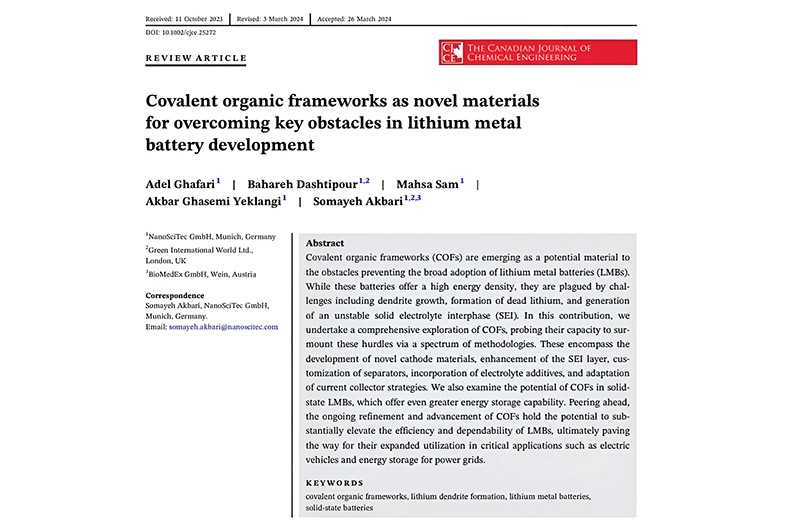Adel Ghafari a, Bahareh Dashtipour a,b, Mahsa Sam a, Akbar Ghasemi Yeklangi a, Somayeh Akbari a,b,c
a NanoSciTec GmbH, Hermann Weinhauser strasse. 67, Munich, 81867, Germany
b Green International World Ltd, 128 City Road, London, United Kingdom
c BioMedEx GmbH, weyringerg 37 Stiege 1, 1040, Wein, Austria
ABSTRACT
Covalent organic frameworks (COFs) are emerging as a potential material to the obstacles preventing the broad adoption of lithium metal batteries (LMBs). While these batteries offer a high energy density, they are plagued by challenges including dendrite growth, formation of dead lithium, and generation of an unstable solid electrolyte interphase (SEI). In this contribution, we undertake a comprehensive exploration of COFs, probing their capacity to surmount these hurdles via a spectrum of methodologies. These encompass the development of novel cathode materials, enhancement of the SEI layer, customization of separators, incorporation of electrolyte additives, and adaptation of current collector strategies. We also examine the potential of COFs in solid-state LMBs, which offer even greater energy storage capability. Peering ahead, the ongoing refinement and advancement of COFs hold the potential to substantially elevate the efficiency and dependability of LMBs, ultimately paving the way for their expanded utilization in critical applications such as electric vehicles and energy storage for power grids.
Keywords: Covalent organic frameworks, Lithium metal batteries, Lithium dendrite formation, Solid-state batteries.
© Article info: First published: 16 April 2024
Doi number: https://doi.org/10.1002/cjce.25272

